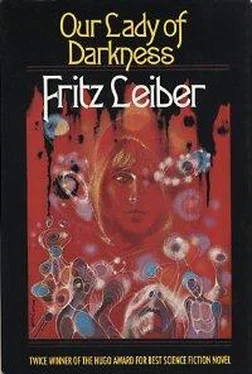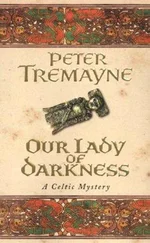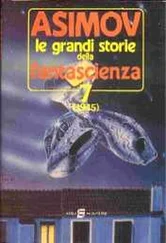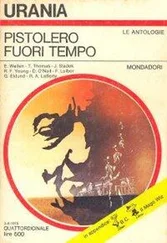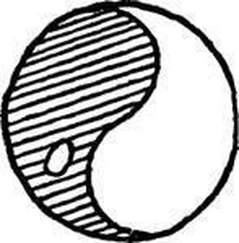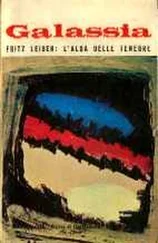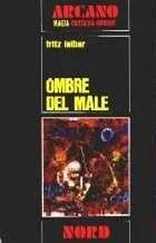The far side of Corona Heights, which faced Buena Vista Park and turned its back on the central city, was steeper than it looked. Several times Franz had to restrain his impulse to hurry and make himself move carefully. Then, halfway down, a couple of big dogs came to circle and snarl at him, not Saint Bernards but those black Dobermans that always made one think of the SS. Their owner down below took his time calling them off, too. Franz almost ran across the green field at the hill’s base and through the small door in the high wire fence.
He thought of phoning Mrs. Luque or even Cal, and asking them to check out his room, but hesitated to expose them to possible danger—or upset Cal while she was practicing—while as for Gun and Saul, they’d be out.
Besides, he was no longer certain what he most suspected and in any case liked to handle things alone.
Soon—but not too soon for him, by any means—he was hurrying along Buena Vista Drive East. The park it closely skirted—another elevation, but a wooded one—mounted up from beside him dark green and full of shadows. In his present mood it looked anything but a “good view” to him, rather an ideal spot for heroin intrigues and sordid murders. The sun was altogether gone by now, and ragged arms of fog came curving after him. When he got to Duboce, he wanted to rush down, but the sidewalks were too steep—as steep as any he’d seen on any of San Francisco’s more than seven hills—and once again he had to grit his teeth and place his feet with care and take his time. The neighborhood seemed quite as safe as Beaver Street, but there were few people out in the chilly change of weather, and once more he stuffed his binoculars back in his pocket.
He caught the N-Judah car where it comes out of the tunnel under Buena Vista Park (Frisco’s hills were honeycombed with ’em, he thought) and rode it down Market to the Civic Center. Among the crowders boarding a 19-Polk there, a hulking drab shape lurching up behind him gave him a start, but it was only a blank-eyed workman powdered with pale dust from some demolition job.
He got off the 19 at Geary. In the lobby of 811 Geary there was only Fernando vacuuming, a sound as gray and hollow as the day had grown outside. He would have liked to chat, but the short man, blocky and somber as a Peruvian idol, had less English than his sister and was additionally rather deaf. They bowed gravely to each other, exchanged a “Senyor Loókay” and a “Meestair Juestón,” Fernando’s rendering of “Westen.”
He rode the creaking elevator up to six. He had the impulse to stop at Cal’s or the boys’ first, but it was a matter of—well, courage—not to. The hall was dark (a ceiling globe was out) and the shaft-window and knobless closet door next to his room darker. As he approached his own door, he realized his heart was thumping. Feeling both foolish and apprehensive, he slipped his key into the lock, and clutching his binoculars in his other hand as an impromptu weapon, he thrust the door swiftly open and quickly switched on the ceiling light inside.
The 200-watt glare showed his room empty and undisturbed. From the inside of the still-tousled bed, his colorful “scholar’s mistress” seemed to wink at him humorously. Nevertheless, he didn’t feel secure until he’d rather shamefacedly peered in the bathroom and then opened the closet and the tall clothes cabinet and glanced inside.
He switched off the top light then and went to the open window. The green drapes were lined with a sun-faded tan, all right, but if they’d been blown halfway out the window at some point, a change of wind had blown them neatly back into place afterward. The serrated hump of Corona Heights showed up dimly through the advancing high fog. The TV tower was wholly veiled. He looked down and saw that the windowsill and his narrow desk abutting it and the carpet at his feet were all strewn with crumbles of brownish paper that reminded him of Gun’s paper-shredding machine. He recalled that he’d been handling some old pulp magazines here yesterday, tearing out pages he wanted to save. Had he thrown the magazines away afterward? He couldn’t remember, but probably—they weren’t lying around anywhere nearby, at any rate, only a neat little stack of ones he hadn’t looted yet. Well, a thief who stole only gutted old pulp magazines was hardly a serious menace—more like a trashman, a helpful scavenger.
The tension that had been knotting him departed at last. He realized he was very thirsty. He got a split of ginger ale from the small refrigerator and drank it eagerly. While he made coffee on the hot plate, he sketchily straightened the disordered half of the bed and turned on the shaded light at its head. He carried over his coffee and the two books he’d shown Cal that morning, and settled himself comfortably, and read around in them and speculated.
When he realized it was getting darker outside, he poured himself more coffee and carried it down to Cal’s. The door was ajar. Inside, Cal’s shoulders were lifting rhythmically as she played with furious precision, her ears covered with large padded phones. Franz couldn’t be sure whether he heard the ghost of a concerto, or only the very faint thuds of the keys.
Saul and Gun were talking quietly on the couch, Gun with a green bottle beside him. Remembering this morning’s bitter words he’d overheard, Franz looked for signs of strain, but all seemed harmony. Perhaps he’d read too much into their words.
Saul Rosenzweig, a thin man with dark hair shoulder-length and dark-circled eyes, quirked a smile and said, “Hello. Calvina asked us down to keep her company while she practices, though you’d think a couple of window dummies could do the job as well. But Calvina’s a romantic puritan at heart. Deep inside she wants to frustrate us.”
Cal had taken off her headphones and stood up. Without a word or a look at anyone, or anything apparently, she picked up some clothes and vanished like a sleepwalker into the bathroom, whence there came presently the sound of showering.
Gun grinned at Franz and said, “Greetings. Sit down and join the devotees of silence. How goes the writer’s life?”
They talked inconsequentially and lazily of this and that. Saul carefully made a long thin cigarette. Its piney smoke was pleasant, but Franz and Gun smilingly declined to share, Gun tilting his green bottle for a long swallow.
Cal reappeared in a surprisingly short time, looking fresh and demure in a dark brown dress. She poured herself a tall thin glass of orange juice from the fridge and sat down.
“Saul,” she said quietly, “you know my long name is not Calvina, but Calpurnia—the minor Roman Cassandra who kept warning Caesar. I may be a puritan, but I wasn’t named for Calvin. My parents were both born Presbyterians, it’s true, but my father early progressed into Unitarianism and died a devout Ethical Culturist. He used to pray to Emerson and swear by Robert Ingersoll. While my mother was, rather frivolously, into Bahai. And I don’t own a couple of window dummies, or I might use them. No, no pot, thank you. I have to hold myself intact until tomorrow night. Gun, thanks for humoring me. It does help to have people in the room, even when I’m incommunicada. It helps especially when evening begins to close in. That ale smells wonderful, but alas, same reason as no pot. Franz, you’re looking quietly prodigious. What happened at Corona Heights?”
Pleased that she had been thinking about him and observing him so closely and accurately, Franz told the story of his adventure. He was struck by how in the telling it became rather trivial-seeming and less frightening, though paradoxically more entertaining—the writer’s curse and blessing.
Gun happily summed up. “So you go to investigate this apparition or what-not, and find it’s pulled the big switch and is thumbing its nose at you from your own window two miles away. ‘Taffy went to my house’—that’s neat.”
Читать дальше
